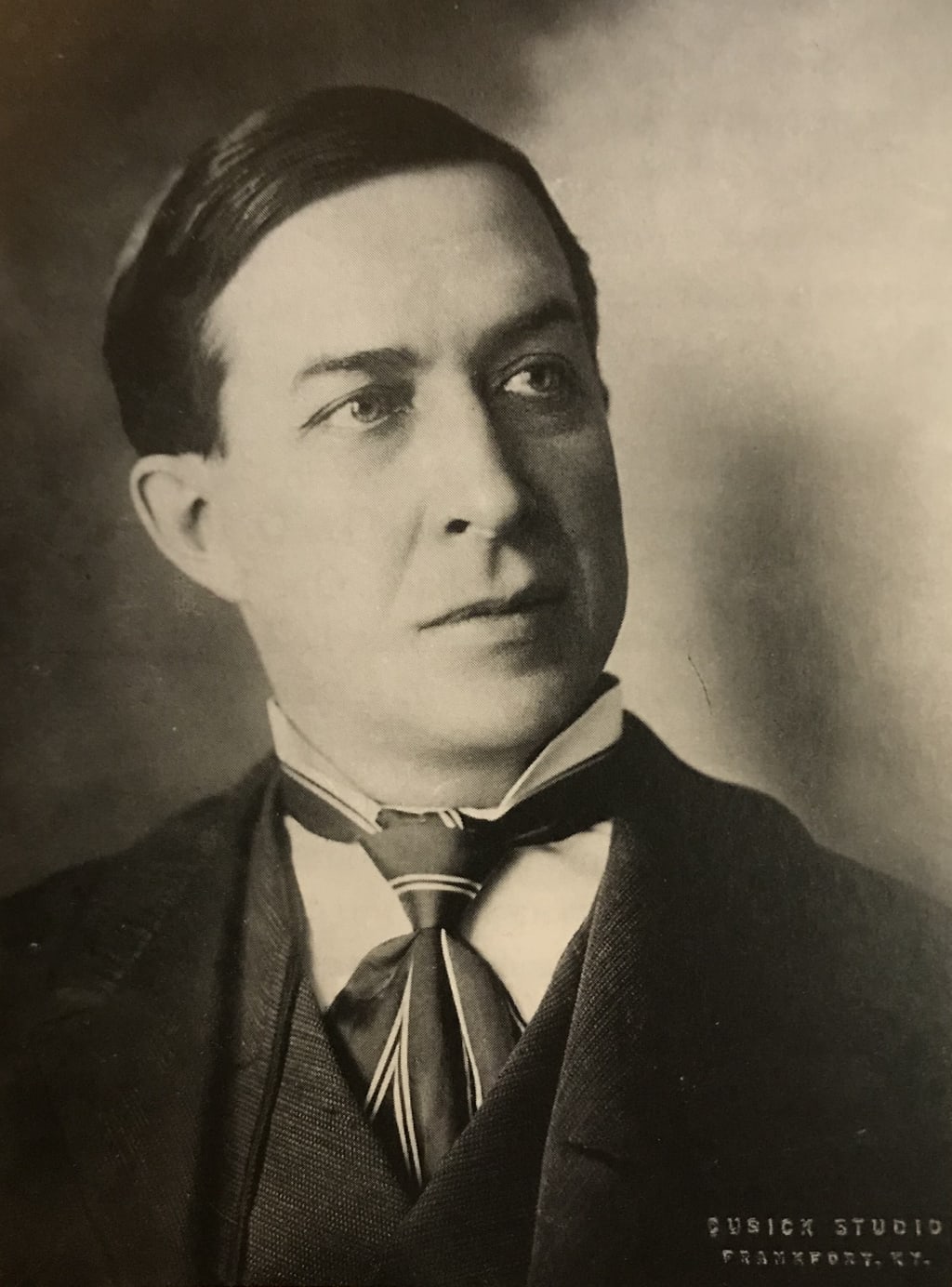The Plot That Killed Governor William Goebel
Kentucky politics had a lot of intrigue.

"Politics have never been this divided," people declare about the current state of American politics. Bipartisanship does seem to be a thing of the past, as both parties dig their heels in on certain issues. However, one needs only to look at the 1899 Governor's race in Kentucky to see how bad it could be.
That election was between Democrat Senator William Goebel and Republican W.S. Taylor. The contest was quite contentious. The State Board of Election Commissioners declared Taylor the winner at first. Even going as far as allowing him to inaugurated as Governor of Kentucky.
He took to the office as quickly as he could.
Things were halted when Goebel declared something was amiss and filed to contest the election with the legislator on January 30, 1900.
Shot At Power
Goebel traveled to the State House with Colonel Jack Chinn and Captain E. Lillard. He presented his case on the same day he filed his official contestation. Shots rang out as the group arrived.
The would-be governor stumbled forward and tried to grab his gun. But Goebel was too weak and fell to the ground.
Taylor pretended to be shocked by the events in the capital. He denounced them. In order to keep the peace, the newly appointed governor called upon the militia. Many questioned how the soldiers knew to be ready before he issued the official order. The prevailing theory is he must have had the militia prepared to go on his word.
In the hopes of holding onto his job, Taylor forbade the legislators from meeting. This did not sit well with some people. They began to ask if he had won fair and square, why not let the legislative team meet and verify the results of the election.
The answer was Taylor knew he didn't win the election.
Two Governors, One State
Goebel was announced as the true Governor of Kentucky on January 31, 1900. Goebel was sworn in as Governor in his hospital bed. Because he was injured so badly, his doctors had objected to no avail.
As his first official act as Governor, he issued an order for the militia to withdraw from the capitol. The militia ignored the order. Taylor was still pulling the strings on the other side of town. The Republican issued vouchers for checks, so the generals could pay their soldiers.
As part of his plan, Taylor pardoned a convict by the name of Douglas Hayes. But Warden Lillard did not recognize the pardon as being legal or official. He therefore refused to release the prisoner.
The courts ruled that Taylor had no authority and could not stop the legislator from meeting. Not one to give up easily, Taylor used the militia to intervene and stop them anyway. Alonzo Walker tried to serve the court order to the faux Governor but he was not permitted in the office. He improvised and tacked it onto the door. Unhappy and unsettled by what was happening, Taylor came screeching out of the office. He demanded nearby soldiers arrest Walker.
Goebel Dies In Power
News of Goebel's death leaked out from the capitol. Many residents of Kentucky were ready to go to fight, they were upset by what had happened to their leader. There was rioting on the streets. Nobody was happy about what happened with the election or the resulting aftermath.
Lt. Governor J. C. W. Beckham was sworn in as the successor to Goebel. He opened an office in the Capitol Hotel. He attempted to quell the feelings of resentment that were mounting against both political parties. To no avail.
Once again the courts subverted Taylor's percieved power. They issued a writ of habeas corpus. It ordered the release of Walker. Taylor fought the order. Ultimately he was forced to relent. Walker was released.
Taylor's tenure as the faux Governor of Kentucky was coming to an end.
Conspiracy Unraveled
Finally on February 10, 1900, Taylor officially withdrew his troops. He did so, two days after Goebel had been laid to rest with a ceremony full of pomp and circumstance.
The legislator's first action was to offer a reward to whoever found the person who assassinated Goebel, when they met on February 12, 1900. Despite many leads coming in, nothing stuck. The bullet that killed Goebel was recovered. Along with other evidence, investigators believed the shots had been fired from Caleb Powers office. The police went to arrest Powers and John Davis. However, Taylor ordered the remaining soldiers to protect the men. The suspects dressed as soldiers and escaped to Frankfurt.
They were not in the clear like they thought, though. The Frankfurt police arrested them upon their arrival. Powers confessed he had brought 1,500 troops into the city in an effort to influence the legislative action. He also addressed a letter to Adjutant General Collier:
My Dear Sir : - There are two companies at this end of the state that refuse to go unless they are called out regularly.
The London company under Captain E. Parker and the Williamsburg company under Captain Watkins are the ones.
We must have these men and guns as we are undertaking a serious matter and win we must. Send orders to have these companies join us Wednesday night. Don't fail. Wire tomorrow.
Will be there Thursday with 1200 men. Arrange board and lodging.
Sincerely yours,
CALEB POWERS."
For some reason, Powers had pictures of Taylor printed with his autograph for the soldiers. He then sent all but 200 men home.
Then along with his brother, hopped on a train to Louisville. After arriving there, he would turn around and headed back to Kentucky.
Many Trials And Confessions
On March 23, 1900, Powers trial began. He presented to the Judge a pardon from Taylor, in the hopes of having the charges thrown out. The court ruled against it. A judge said that Taylor was not recognized as an elected official, and in fact, he was attempting to usurp the state. Powers appealed the decision to every conceivable court. It even went to the Supreme Court, the justices upheld the lower court's decision. Powers was granted a change of venue.
He was charged with conspiracy before the fact. Sergeant F. Wharton Golden told the court that he had orders to kill as many Democrats as possible. In his testimony, Golden implicated Taylor in the scheme. He also claimed two black men were hired to actually kill Goebel; "Tallow Dick" Combs and "Hocker" Smith.
As the trial moved forward, there was an argument between the two sets of attorneys. A riot ensued. Henry E. Youtsey, a State Clerk Auditor, was one of the people arrested. He admitted he had a role in the conspiracy. He told the court, he handed over the gun that would kill Goebel to Jim Howard. He also said that he paid Howard $1,600 for the completed job.
Taylor was charged with conspiracy based on Youtsey's testimony.
Trial Of A Former Governor
Taylor did not stick around for the trial. Rather, he ran away to Indianapolis. Despite repeated requests, the Governor of Indiana did not extradite Taylor back to Kentucky.
Since authorities weren't having an easy time, some citizens took justice into their own hands.There was at least one attempt to kidnap Taylor and get him back to Kentucky to face the charges.
Taylor was pardoned by Governor Augustus E. Willson after he dodged charges for nine years. He still remained in his new home and focused on his career as an insurance executive and lawyer.
Still, the scandal plagued the politico until he died in 1928. He was buried close to his new home in Indianapolis.
The Complicated Powers
Caleb Powers was convicted of conspiracy three times. After each conviction, he appealed and ask for a new trial. As he awaited the fourth trial, sitting in the Georgetown jail, Wilson pardoned him and he was a free man.
After he was pardoned, Powers ran for congress as a Republican. He won that election. The congressman would be re-elected three times. In 1918, he was not up for renomination and stepped aside for the next candidate.
Powers died in 1932. He was living in Baltimore at the time with his second wife and daughter.
Goebel's death is still a hot topic among residents of Kentucky. Many people are dissatisfied with how the case was handled. They are also aware of how fractured the state of politics can become.
About the Creator
Edward Anderson
Edward has written hundreds of acclaimed true crime articles and has won numerous awards for his short stories.






Comments
There are no comments for this story
Be the first to respond and start the conversation.